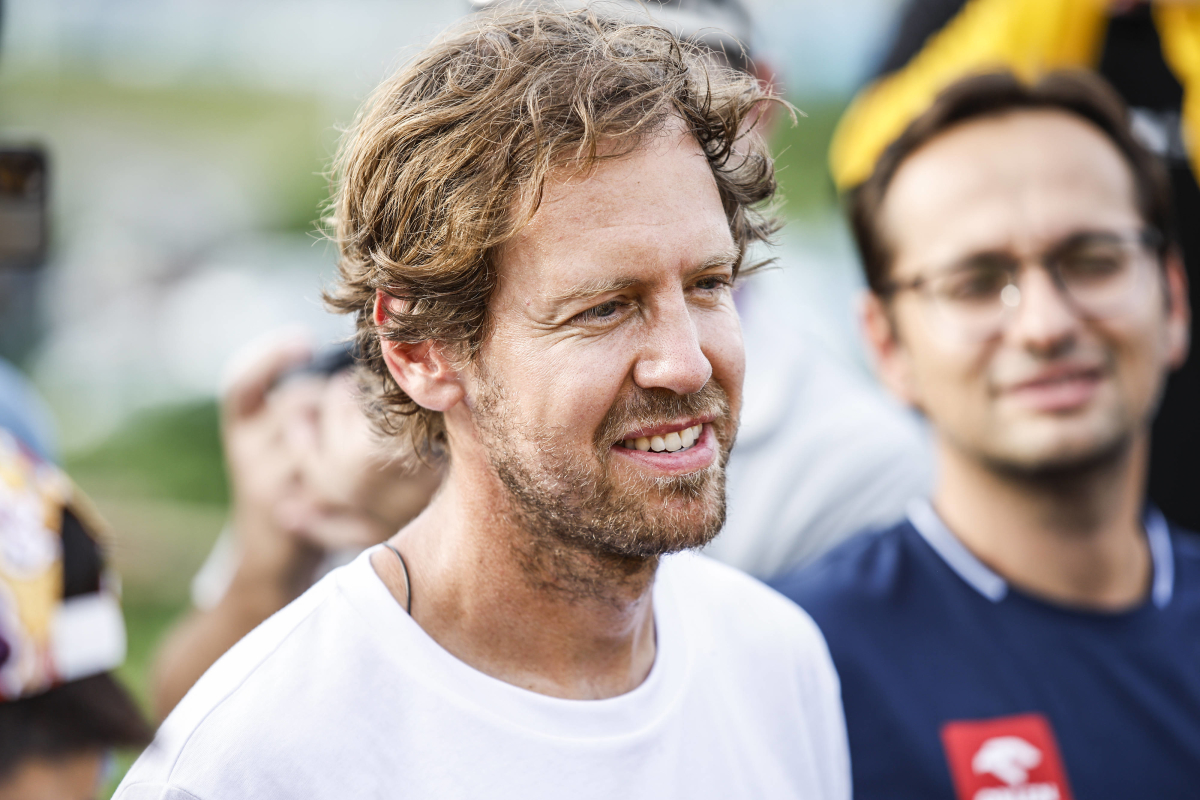
“Vettel’s Legacy: The End of Passion in Racing – Why We Need Schumacher’s Spirit Back”
Sebastian Vettel retired from Formula 1 as one of the sport’s most decorated drivers. Four world championships, 53 race wins, and a career that spanned over a decade—it’s a resume few can argue with. Yet, for all his accolades, Vettel’s era has ushered in something troubling: the slow death of true racing passion. Formula 1 has become a corporate machine, its drivers spokespeople for global brands, and racing itself is a polished, risk-averse spectacle. It’s time to admit that we need the raw, unapologetic fire of a Michael Schumacher to restore the soul of Formula 1.
Vettel’s dominance in the early 2010s is often credited with bringing a “new era” to Formula 1, but in truth, it dulled the edge of the sport. Where Schumacher was ruthless, daring, and controversial, Vettel was calculated and diplomatic. Schumacher never shied away from the harshness of competition—he wasn’t afraid to bend the rules or to lock horns with rivals in ways that thrilled fans and made headlines. His win-at-all-costs mentality wasn’t always popular, but it made every race unpredictable. You never knew if Schumacher would outdrive his opponents, push them off the track, or pull off a miracle in the dying laps. He brought a gladiatorial spirit that made F1 thrilling to watch.
Vettel, on the other hand, became the poster child for a sanitized version of racing. His dominance was clinical and detached. Even his famous moments, like the “Multi-21” controversy with Mark Webber, pale in comparison to Schumacher’s hard-nosed battles with Mika Häkkinen or his controversial clash with Damon Hill in 1994. When Vettel was asked to hold position, he disobeyed, but it lacked the raw drama that Schumacher’s controversies always carried. Where Schumacher’s actions felt personal and primal, Vettel’s simply came across as a mild rebellion within the confines of a corporate playground.
The problem is deeper than just personality. Schumacher’s era wasn’t just about talent; it was about pushing limits—physical, mental, and mechanical. The cars were beasts, and drivers were gladiators. Schumacher’s relentless testing sessions at Ferrari, his ability to extract every ounce of performance from his car, and his almost machine-like dedication to winning are legendary. He brought a fearlessness to racing that defined an entire generation.
Compare that to Vettel’s time, where the emphasis shifted to team orders, fuel management, and tire conservation. It’s a new breed of racing—efficient, calculated, and risk-averse. And while Vettel played this game to perfection, it stripped the sport of its unpredictability. Schumacher’s races were battles, both with the car and his opponents, while Vettel’s often felt like a foregone conclusion by lap 10. Schumacher wasn’t afraid to push beyond the edge of control, risking everything, because the win mattered more than anything. Vettel’s era, on the other hand, seemed more concerned with managing pace and protecting tires. It’s safer, sure—but it’s also boring.
What F1 needs now isn’t another era of politeness and corporate-approved rivalries. It needs the raw, unapologetic drama that Schumacher brought. His willingness to be hated, his relentless pursuit of victory at all costs, and his ruthless driving style gave the sport its edge. Schumacher wasn’t just racing for trophies; he was racing for legacy, for history, and for the kind of immortality that only comes when you’re willing to risk everything on the track.
If Formula 1 wants to recapture the imagination of fans and return to its glory days, it doesn’t need more drivers like Vettel—it needs someone who embodies the spirit of Schumacher. We need drivers who aren’t afraid to push the limits of the car, the rules, or even themselves. We need rivalries that aren’t polite PR exercises but bitter, heated battles. Schumacher didn’t just race his opponents; he fought them, sometimes literally, for supremacy.
Sebastian Vettel’s career, for all its success, left Formula 1 polished, predictable, and passionless. He may be one of the sport’s greatest champions, but what F1 really needs is a driver who can bring back the blood, sweat, and fire that Schumacher represented. Racing needs to be dangerous again—not just physically, but emotionally. Without that, Formula 1 will continue its slow drift into becoming just another polished, risk-managed sport, devoid of the raw energy that made it legendary in the first place.
Schumacher may no longer be on the grid, but his spirit—his willingness to be controversial, to be feared, and to win at all costs—is what the sport desperately needs to resurrect.




